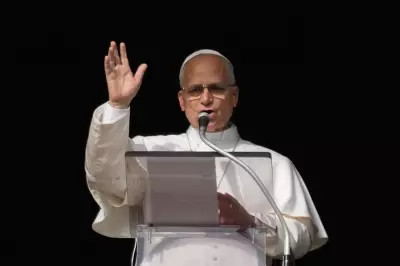
The British government has triggered widespread condemnation after confirming a substantial reduction in its contribution to one of the world's most critical health organisations. The decision to slash funding to the Global Fund to Fight AIDS, Tuberculosis and Malaria represents what critics are calling a devastating blow to international health efforts.
The UK's contribution will fall from £298 million to approximately £178 million - a dramatic cut of around 40% that has stunned global health advocates. This reduction comes despite the Global Fund's proven track record in saving lives and preventing the spread of deadly diseases across developing nations.
Expert Reactions and Warnings
Leading health organisations and medical experts have expressed profound concern about the implications of this decision. The Global Fund has historically been one of Britain's most successful partnerships in global health, making these cuts particularly difficult to comprehend for many observers.
Mike Podmore, representing STOPAIDS, described the move as 'a huge mistake' that could have severe consequences for vulnerable communities worldwide. Health professionals warn that reducing support for established programmes fighting AIDS, tuberculosis and malaria undermines years of progress and could lead to resurgences of these diseases.
The timing of these cuts has raised additional concerns, coming at a moment when many health systems in low-income countries remain fragile following the COVID-19 pandemic. Many nations were counting on continued international support to rebuild their healthcare infrastructure and maintain essential disease prevention programmes.
Broader Implications for UK's Global Role
This decision forms part of a wider pattern that has seen the UK gradually retreat from its traditional leadership position in global health initiatives. The reduction in aid spending contradicts earlier government commitments and could damage Britain's international reputation as a reliable partner in development work.
Critics argue that cutting funding to proven organisations like the Global Fund represents false economy. Every pound invested in preventing diseases like malaria and tuberculosis generates significant returns by reducing future healthcare costs and supporting economic stability in partner countries.
The move has also sparked concerns about the UK's commitment to achieving the Sustainable Development Goals, particularly those related to health and wellbeing. Many of the programmes supported by the Global Fund directly contribute to these international targets.
As other nations consider their own aid budgets, there are fears that the UK's decision could encourage similar reductions elsewhere, creating a domino effect that would further weaken global health security. In an interconnected world, disease threats anywhere represent potential risks everywhere, making strong international health cooperation more crucial than ever.
Looking Ahead: Consequences and Alternatives
The practical impact of these cuts will be felt most acutely in communities across Africa and Asia where Global Fund programmes provide life-saving treatments and prevention measures. Health workers on the ground now face the difficult task of deciding which services to maintain and which to scale back.
Some experts suggest that the government could have explored alternative approaches to managing budget pressures without compromising essential health programmes. Strategic prioritisation rather than blanket cuts might have protected the most critical interventions while still achieving savings.
The decision raises fundamental questions about Britain's future role in global health governance and whether the country can maintain its influence in international health discussions while reducing its financial contributions to key organisations.
As the global community continues to grapple with health inequalities and emerging disease threats, many are hoping the government will reconsider this approach and restore funding to levels that reflect both Britain's capabilities and its historical commitment to global health progress.





